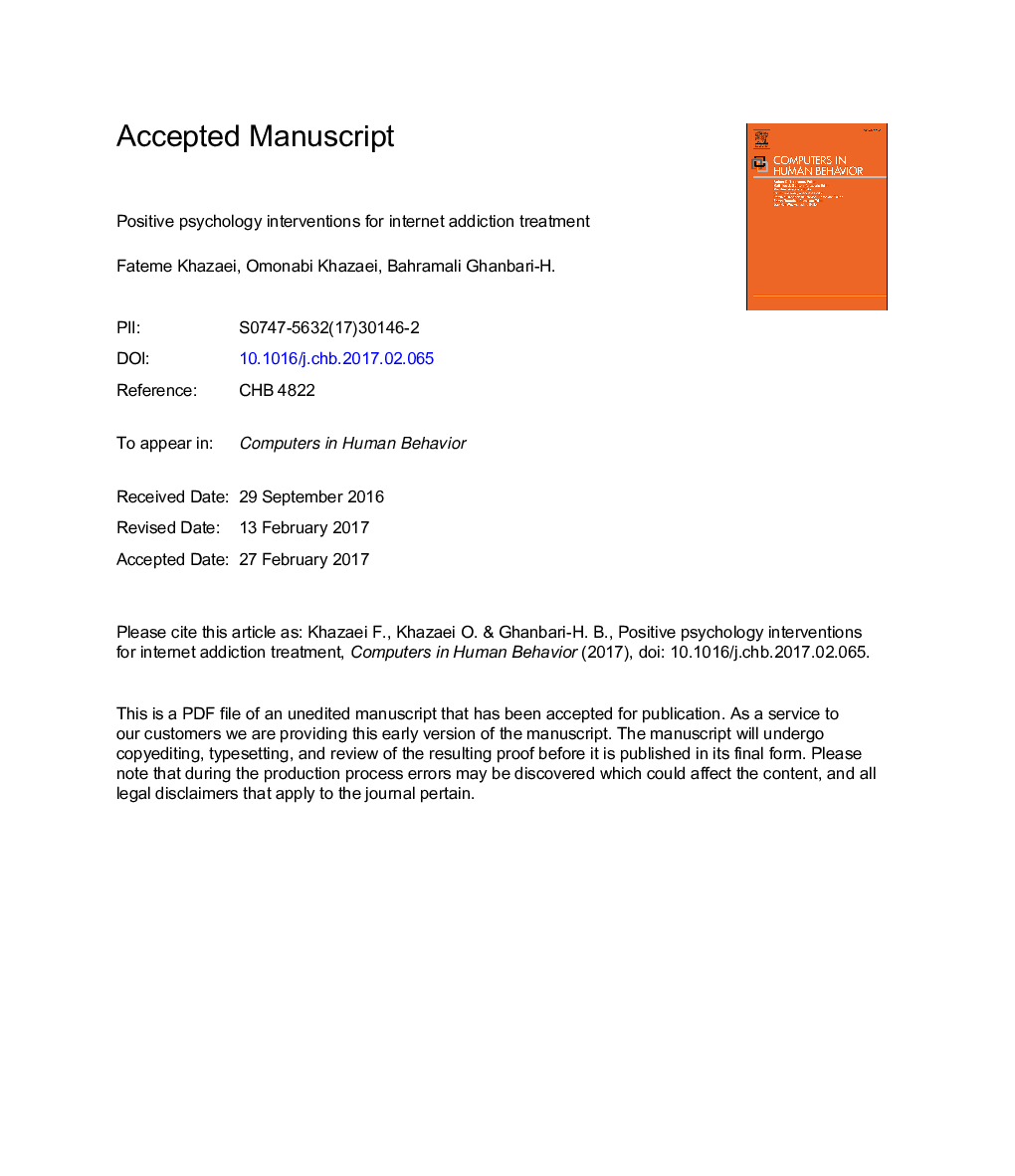| Article ID | Journal | Published Year | Pages | File Type |
|---|---|---|---|---|
| 4937101 | Computers in Human Behavior | 2017 | 32 Pages |
Abstract
Internet addiction is a new form of dependence on equipment connected to the network. This type of addiction has many negative consequences, particularly in the area of social relations. Although a variety of methods have been presented for the treatment of this problem, they are in their beginning stages and studies are in progress in this field and secondly, they commonly ignore the effects of positive interventions in the treatment. Positive psychology interventions (PIs) refer to individual/group-based treatment methods that increase positive emotions and can enhance social relationships of individual(s). The aim of the current study is to evaluate the efficacy of a group-based PI in treating Internet addiction (IA). For this purpose, PI-based treatment sessions are designed and forty-eight internet-addicted university students are randomly assigned to an experiment group (n = 24)/control groups (n = 24). Measures of the severity of Internet use (SI), quality of relationships inventory (QRI), Bell's adjustment inventory (BI) and IA rate are assessed at baseline and after intervention. The results indicate that SI and IA rate in the experiment group are lower than those in the control group, while social adjustment and quality of relationships in the experiment group revealed an increase compared to the control group. According to the results, PI is an effective method for treating IA, specifically in mitigating Internet use and improving the quality of social relationships.
Related Topics
Physical Sciences and Engineering
Computer Science
Computer Science Applications
Authors
Fatemeh Khazaei, Omonabi Khazaei, Bahramali Ghanbari-H.,
